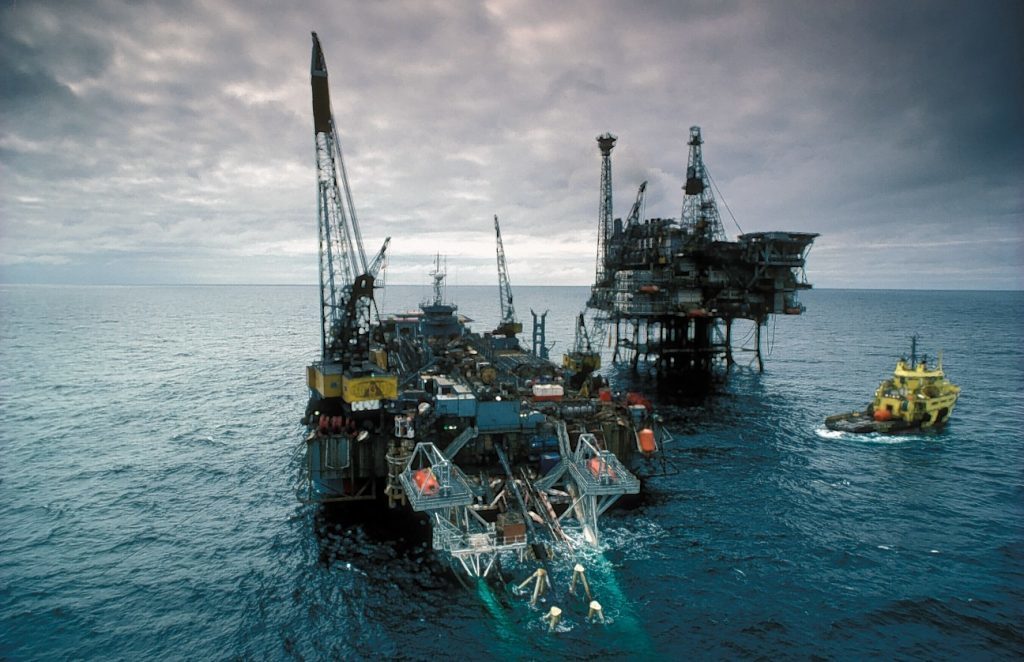
US oil firm Apache said yesterday that its North Sea Callater project had started producing early and under budget.
The Houston-headquartered firm said 19,000 barrels of oil equivalent (boe) per day were being pumped from two wells following the completion of a tie-back.
Callater, formerly known as the “K discovery”, is located about 210 miles north-east of Aberdeen, within the Beryl area.
Apache has a 55% working interest in Callater, while Shell has the remaining 45%.
It is thought to hold net reserves of between 25million and 50million boe.
The North Sea is one of Apache’s three main stomping grounds, along with North America and Egypt.
Apache entered the basin after buying the Forties field from BP in 2003. It bought the Beryl, Ness, Nevis, Nevis South, Skene and Buckland fields from ExxonMobil in early 2012.
Apache’s North Sea production averaged 56,400 boe per day during the first half of 2017, down from 70,450 a year ago.
First half pre-tax profits totalled £415million, up from a deficit of £505million in 2016.
Revenues jumped 32% to £2.5billion.
Apache chief executive John Christmann said production from international assets would increase during the second half of 2017.
Mr Christmann said the company would be able to cover its full-year capital expenditure and dividend through cash flow from operations and money generated by recent sales, rather than having to dip into the balance sheet.
“We expect to end 2017 with more cash, less debt and significantly higher production levels,” he said.
The company had net debts of £5.2billion at June 30, a decrease of £110million from the end of March.
Last month, Apache announced plans to sell its Canadian business in a deal worth about £550million. The transaction is expected to go through this month.
Canadian Natural Resources (CNR), another North American company with assets in the UK, said it was making progress with decommissioning the Ninian North platform, where production stopped in May.
Well abandonment activities are currently under way, Calgary-headquartered CNR said.
CNR bought the Ninian field from Kerr-McGee in 2002 in what was its debut North Sea deal.
The company also said it had decommissioned the Murchison platform in the second quarter of 2017, on time and on budget.
CNR said its North Sea business was focused on improving production, increasing reliability and carrying out a “modest drilling programme”.
In the first half of 2017, North Sea crude oil production at CNR totalled 24,682barrels per day, up 5.8% year-on-year.
CNR posted first half pre-tax profits of £900million, having suffered losses of £570million a year ago.
Revenues climbed to £4.5billion from £2.8billion.
Meanwhile, first-half pre-tax losses from continuing operations at Marathon Oil narrowed to £97million from £610million in 2016.
In June, Marathon, whose UK operations are based in Aberdeen, submitted decommissioning plans for the Brae area, 170 miles north-east of the Granite City.
Recommended for you

